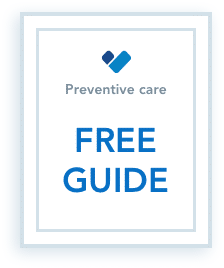What’s considered a qualifying life event? | Special Enrollment Periods
You need health insurance. You’ve spent time comparing your options online, found the perfect plan, and are ready to start the enrollment process. However, depending on the time of year, you may or may not be able to enroll. During the annual Open Enrollment Period (Nov 1st–Dec 15th), anyone can enroll in a new health insurance plan. But outside of Open Enrollment, you can only enroll if you’ve experienced a qualifying life event.
So what’s considered a qualifying life event (QLE)?
It’s a major event in your life (like losing your health insurance, adopting a baby, or getting married) that makes you eligible for a Special Enrollment Period. When this happens, you’re able to enroll in health insurance outside of Open Enrollment.
— To make things easier, we also created a FREE guide that highlights each type of qualifying life event. Grab it here and save to your computer for future reference. —
What are the different types of Qualifying Life Events?
Losing your health insurance
- Losing coverage through your employer
- Losing coverage through a divorce or legal separation
- Losing coverage through a family member
- Turning 26 and aging out of your parent’s health insurance
- Losing your COBRA coverage
- Losing your coverage through Medicare, Medicaid, or CHIP
- Losing a health insurance plan you bought yourself
Changes in your household size
- Getting married
- Having a baby or adopting a child
- Placing a child in foster care
- Losing coverage through a divorce or legal separation
- Losing coverage due to a death of a family member
Changes in your residence
- Losing coverage when moving to a new county or ZIP code
- Losing coverage when moving to or from the place you attend school
- Losing coverage when moving to or from transitional housing
- Losing coverage as a seasonal worker when moving to or from the place where you both live and work
- Moving to the United States from a foreign country or United States territory
Additional qualifying life events
- Starting or ending your service as an AmeriCorps VISTA member
- Leaving jail or prison
- Becoming a U.S. citizen
- Becoming an Alaska Native shareholder
- Joining a federally recognized tribe
You can also find a list of additional, complex qualifying life events here.
How long does a Special Enrollment Period last?
Typically, you have 60 days following the event to enroll in a new health insurance plan. However, it varies depending on the type of qualifying life event.
If you get married, have a baby, adopt a child, go through a divorce, or get released from incarceration, you have to enroll the day of or up to 60 days after the QLE. If you experience any other QLE, you can enroll 30 days prior or 60 days after the event.
It’s also important to remember, if you don’t enroll during your SEP, you may have to wait until the following Open Enrollment Period to apply.
I’m ready! How do I enroll in a new health insurance plan?
Enrolling in a new plan is easy to do! You can either enter your zip code below to grab a quote:
Or you can reach out to our Consumer Advocate team who can help you enroll at (855) 772-2663.
P.S. Don’t forget to grab our FREE guide to refer back to later.














[…] Marketplace. However, the annual Open Enrollment Period has passed, but you can look over these life events to see if you qualify for a Special Enrollment […]
[…] If something prevents you from enrolling during the annual Open Enrollment Period, you still might be able to sign up for health insurance during a Special Enrollment Period. Specifically, if you experience an approved qualifying life event (QLE): […]
Thanks for your interesting article. One other problem is that mesothelioma cancer is generally the result of the inhalation of dust from asbestos fiber, which is a carcinogenic material. It truly is commonly seen among personnel in the engineering industry who have long experience of asbestos. It could be caused by living in asbestos covered buildings for some time of time, Genetics plays a crucial role, and some folks are more vulnerable to the risk compared to others.